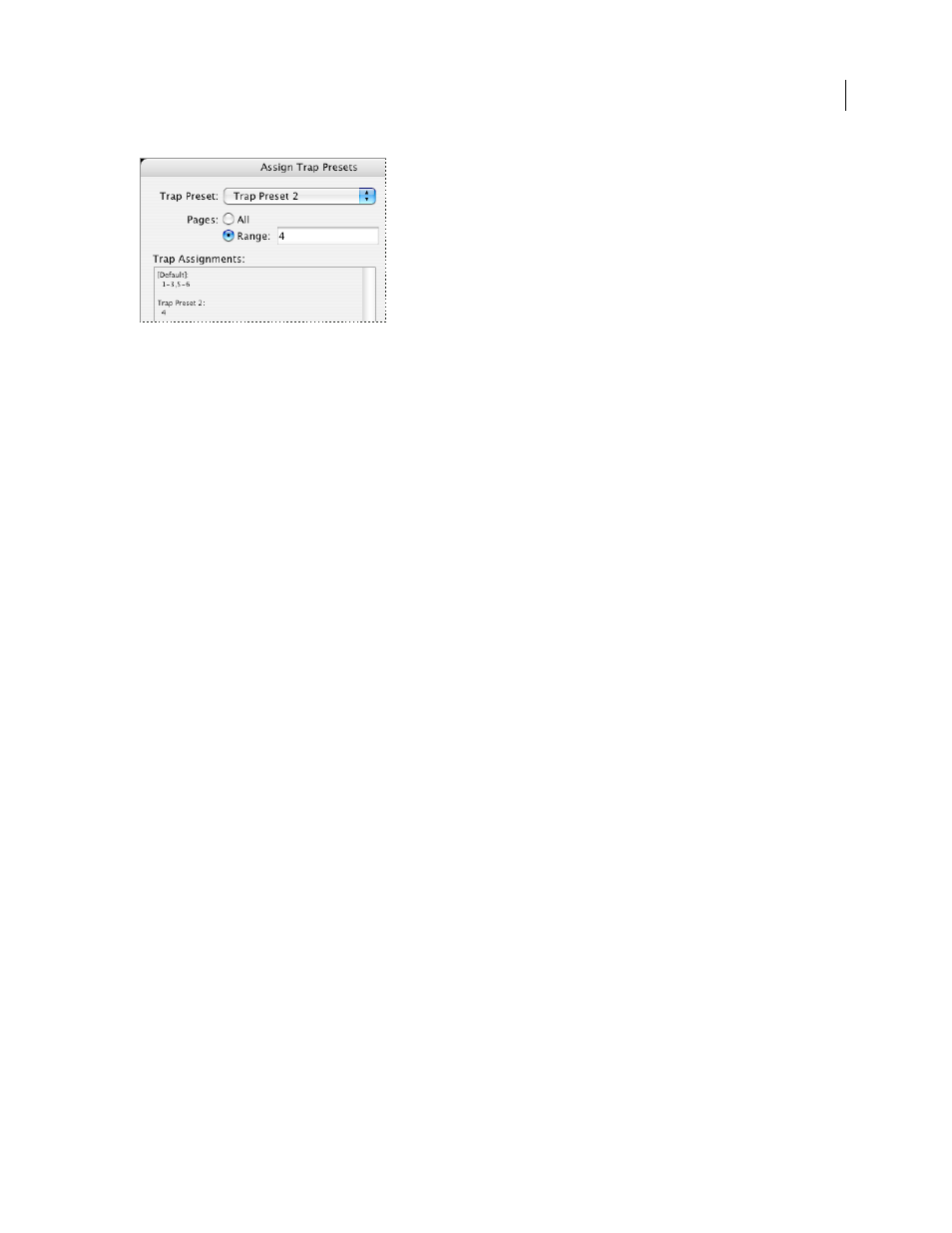Trap preset options – Adobe InDesign CS3 User Manual
Page 473

INDESIGN CS3
User Guide
466
Trap assignments list the presets you have applied to various pages; the trap assignments are updated each time you click Assign.
1
In the Trap Presets panel, choose Assign Trap Preset in the panel menu.
2
For Trap Preset, choose the preset you want to apply.
3
Select the pages to which you want to apply the trap preset.
4
Click Assign, and then click Done.
Note: If you click Done without clicking Assign, the dialog box closes without making any changes to the trap assign-
ments. Trap assignments previously made using the Assign button are preserved.
Set up trapping page ranges
1
In the Trap Presets panel, choose Assign Trap Preset in the panel menu.
2
For Trap Preset, choose the preset you want to apply to the page ranges.
3
Select Range, and type one or more ranges in ascending sequence, using a hyphen for each range, and separating
pages and ranges with commas, or with commas and spaces. For example, 2-4, 6, 9-10, 12- is a valid range.
4
Click Assign, and then click Done.
Disable a trapping page range
1
In the Trap Presets panel, choose Assign Trap Preset in the panel menu.
2
Type a page range and choose [No Trap Preset] in the Trap Preset menu.
3
Click Assign, and then click Done.
Trap preset options
You can change trap preset options whenever you create or edit a trap preset. The same trap preset options are
available in Acrobat and InDesign. In Acrobat, you can view trap presets by choosing Tools > Print Production >
Trap Presets. In InDesign, choose Window > Output > Trap Presets.
Trap widths
Trap width is the amount of overlap for each trap. Differences in paper characteristics, screen rulings, and printing
press conditions require different trap widths. To determine the appropriate trap widths for each job, consult your
commercial printer.
Default
Specifies the trap width in points for trapping all colors except those involving solid black. The default value
is 0p0.25.
